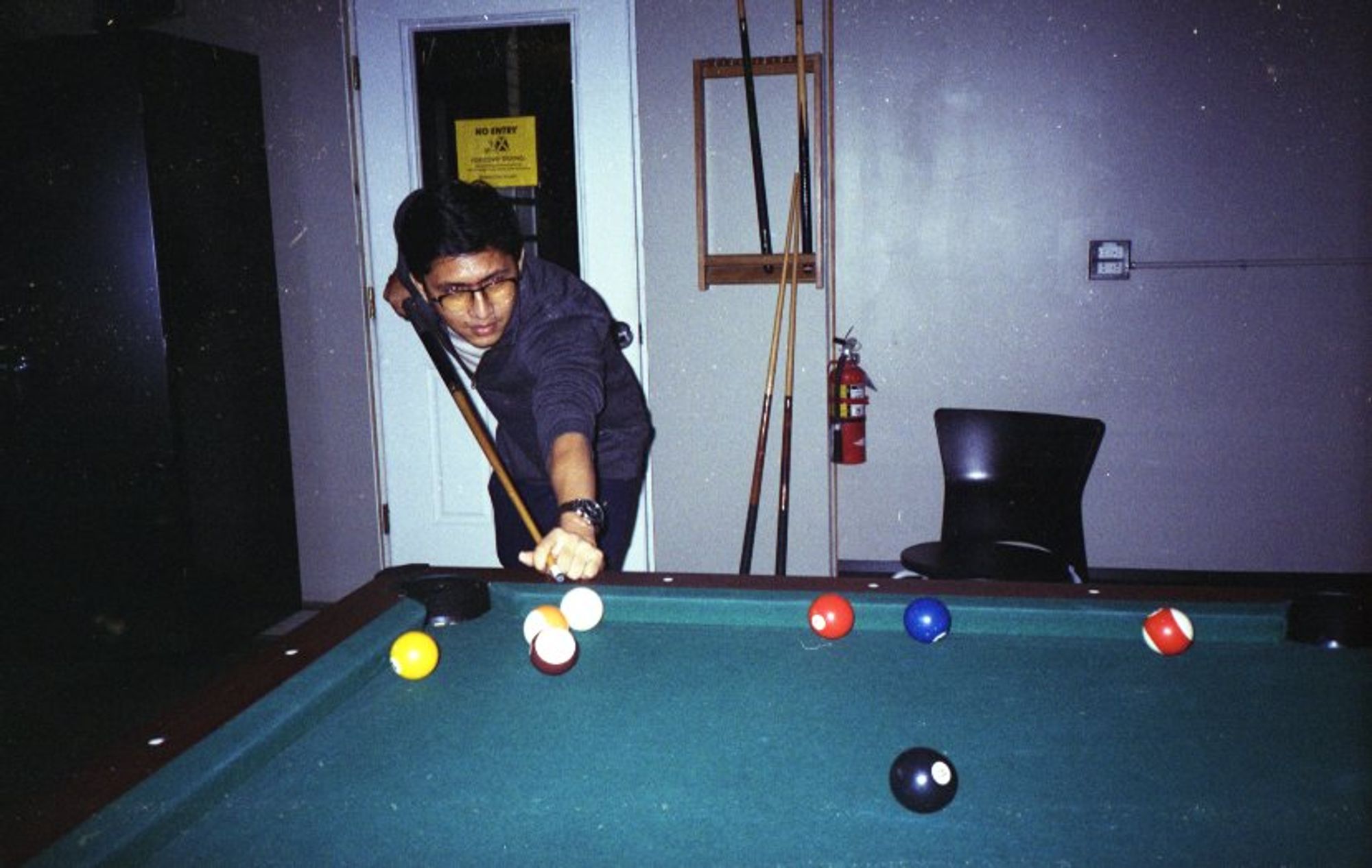I participated in 40+ virtual events over the years and here's what I learned.
What is Demonstrated Interest?
Demonstrated interest refers to the extent to which you show the college that you are eager to attend their school. In simple words, demonstrated interest means you showing great enthusiasm in attending the particular school.
Demonstrated Interest is a very underrated component of the application that most Bangladeshi applicants aren’t aware of. If you’re someone who doesn’t have 1550+ scores on the SAT or great olympiad backgrounds, demonstrated interest can play a vital role in getting you in despite your other weak components. [Even if you have those elite stats, demonstrated interest is important if you’re shooting for midtier or safety colleges].
Demonstrated Interest mainly matters in Midtier or safety colleges. Top t20, t50 colleges don’t tend to track demonstrated interest with the exception of a few.
The ways to show Demonstrated Interest
- Applying via Early Decision or Restrictive Early Action or Early Action.
- Completing all the optional supplemental essays the college might have.
- Completing an interview even though it might be optional.
- Writing detailed researched why college essays.
- Attending Virtual Events.
- Contacting regional admission officers with thoughtful questions that aren’t on the website.
- Sending a Letter of Continued Interest.
Applying ED/REA/EA: Most colleges have higher acceptance rates in these admission cycles. Especially ED & REA shows that the school is your first choice, and thus increases your chances. For example, Duke University’s Class of 2024 Early Decision acceptance rate was 20.6% while the Regular Decision acceptance rate was only 6%.
Completing Supplements: Even though they say it’s optional, for most colleges, no supplemental essays are ‘really’ optional. So if they have an optional essay, complete it. Some colleges pop up optional essays in their portal after you apply. Such colleges include Grinnell, Denison, Yale-NUS, etc. Complete those optional essays if you wanna have a better chance.
Completing Interviews: If they say interviews are optional, don’t believe them even if they’re right. Interviews are the most unique way to show your voice, your story that can’t be expressed with words and commonapp structures. It improves your chances highly. I’ll write in detail about interviews and the best tips and tricks in the coming days. Stay tuned with my posts & blog (talha.notion.dog/admissions) for that.
Detailed ‘Why College’ essay: What makes a ‘why college’ essay great? I’ll definitely need another post to write about that. Stay tuned with my blog for the most resourceful contents on admissions.
Writing LOCI: A letter of continued interest (LOCI) is usually sent when you’re deferred or waitlisted. LOCI contains updated information about you, your grades, and activities. Also, you write you’re still interested in that school.
Attending Virtual Events
This is what this post is all about. I’m gonna talk so much about this, at the end, you’re gonna thank me even if you get rejected. Basically, virtual events are organized by colleges [usually zoom calls, webinars] where colleges share a variety of things from all about their admissions to campus life to a virtual tour to office hours with professors to all most everything about colleges.
Storytime 1: In one virtual office hours session, I met two professors, in a one-to-one session and chatted with them for more than 1.5 hours. Just think about it, I didn’t even apply by then, yet two professors (one CS dept chair) conversed with me for around 2 hours answering anything and everything I had to ask (and trust me I had a lot to ask). I prepared a series of questions based on what makes a CS dept great imo, and I reused that for every college more or less. Later after that session, we connected via email and the professors gave me feedback on what they felt about me as a potential student and insightful advice that weren’t related to their college. This was so wholesome experience that it’s worth being awake at 3 AM to attend the session.
There are several types of virtual events
- Virtual Information Session
- Virtual Tour
- Virtual Open House
- Virtual Office Hour
- Virtual Student Panels
- Virtual Interviews
- Virtual Special Events
Virtual Information Sessions: Usually an admission officer will talk about their college, mission, what they look for, the admission process, etc., and will answer questions from participants. Average time 45mins - 1hour.
Virtual Tour: Usually an admission officer or a current student volunteer will take you on a virtual tour of their college campus, describing each of the corners of campus with personal anecdotes. Virtual tours can be group tours or one-to-one tours, varying from college to college.
Storytime 2: I took a virtual tour to Bennington and a wonderful undergrad, named Grace, walked me through each of the campus aspects, showing me all the hidden places. She even told me things that she wasn’t “allowed” to tell lol. During that session, our meeting was constantly being disturbed by a roommate of hers who was practicing music in the next room. She was constantly apologizing on his behalf and that actually showed me how supportive the Bennington community is for trying out new things. I wrote about her in my why Bennington essay and described why such a supportive community would supplement my growth.
Virtual Open House: An open house is an event where highschool seniors get to spend 2-3 days in a college, taking sample classes, meeting professors, dining with current students, and getting a full college experience before applying to the college. Due to Covid, open houses are held virtually and international applicants get to participate. This year was the first time it happened and it’ll keep happening from now on. A virtual open house is comprised of all the in-person events, just virtually: you get to meet professors, take a virtual tour, meet current students, etc. Note that this event usually happens around June-July time compared to other virtual events that take place from September-February time. So this event requires early research and registration. My storytime 1 was from a virtual open house. Average time: several events over 1-2 days.
Virtual Office Hours: In this event, you get to meet faculties of that college and you can choose the major where you want faculties from. Usually, virtual office hours are less available compared to other events as professors’ time is extremely valuable. In general, virtual office hours are held in virtual open house events. But several colleges offer office hours separately and I took part in those as well.
Storytime 3: In one of virtual office hours, I met a professor and a current student in a one-to-one session and again grilled them on their CS dept with questions. Later after that event, the professor, who was the CS dept chair, reviewed my resume and gave me great feedback on how I would fit in and all that. I talked about him in my interview with that college to the admission officer.
Virtual Student Panels: A couple of current students talk all about the campus and living in that college and answer questions from participants.
Virtual Interviews: It’s the usual admission interview conducted by an admission officer or a current student or alumni. Some colleges invite you for interviews but for colleges, you have to schedule the interview by yourself from their website.
Virtual Special Events: These events get organized on special aspects of the college, maybe about a special program, about any of their initiatives, about their coalition with other colleges, etc. For instance, Lehigh holds a virtual session on CSB (Computer Science and Business) every year where the director of the program will talk in-depth about this special major. It helped me a lot to write their “Why CSB” essay with the information that wasn’t anywhere else. I participated in an event consisting of Bennington named “7 colleges for innovative students” where I got to learn about Bennington’s entrepreneurial spirit (the 7th most entrepreneurial college in the US) and that helped me connect myself with Benn in the essays.
Do they track these events and participation?
Yes, they do. Colleges that track demonstrated interest track all your participation.
Storytime 4: My virtual interview with a college started with a question from my AO, “So how did the X event go? Did you like it?”. I was struck. I then answered what I felt about that event and informed him that I was the person asking the most questions in that event. At the end of the interview, I asked him how did he know that I participated in that event. He told me, “All your participations are in front of me. As we track demonstrated interest, we have all the participation listed in your file. The same thing happened with several other colleges.
How do I find the virtual events?
Google college name + “virtual events”. For example, “Gettysburg Virtual Events”
Where do I find the list of colleges that track demonstrated interests?
Here's a list of . The list has been built with knowledge from hundreds of sources and my personal experiences.
Should I participate in these virtual events if the college does not track demonstrated interest?
Yes. I’ll tell you why. I described how I got to know things from virtual tours, information sessions, that aren’t on the website or anywhere else and only the students know. When you have these personal anecdotes and experiences, you can link those in the why college essays or mention those in the interviews and that actually builds up a good impression to the AOs. Even if they don’t track virtual participation, every college wants to see that you’re excited to attend the college if they accept you. And you do that by writing great why college essays that contain such information that only gets revealed through in-depth research.
My advice when attending these events
- Learn to use Google calendar mobile app and keep track of all the events you register for.
- Most of these events happen around 2-8 AM range in Bangladesh time, so be prepared to stay awake.
- If you participate in such events at such odd times like 2 or 3 AM at night, let em know through any means like chats, or in-voice, or email; they usually get impressed by such dedications.
- Open your webcam when you have the option to do so. Seeing your face would make a memorable impression. A lot of the time, AOs would recognize you if you participate in several events of their college.
- Prepare a list of non-generic questions that you can reuse for all events. Make sure that these questions aren’t answered on the website. Ask questions whenever you can throughout the events.
Storytime 5: I messed up one of my why college essays for a logical reason and emailed my regional Admission Officer for that college. She cheerfully told me she recognized me from one of the virtual events and she managed to find ways for me to submit my edited why college essay.
I attribute my acceptances in a great deal to demonstrated interest. I wrote my best why college essays with the information that I acquired from the virtual events.

